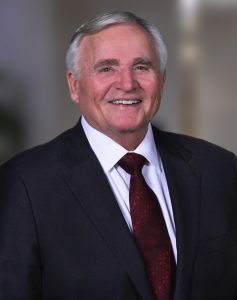Author: pricilagran
WHEN: Thursday, March 2, 2023
9am-11am and 3pm-5pm (Bring your resume)
WHERE: Lindner Center of HOPE – gymnasium
4075 Old Western Row Road
Mason, OH 45040
WHEN: Thursday, March 2, 2023
9am-11am and 3pm-5pm (Bring your resume)
WHERE: Lindner Center of HOPE – gymnasium
4075 Old Western Row Road
Mason, OH 45040
Over 150 people joined the Hopewell and Lindner Center of HOPE January Summit to learn
about the basics of OCD. Join us for the upcoming summits, traveling deeper into OCD topics.
Whether you are a seasoned treatment veteran, new to the mental health field, or want to learn
more, this series aims to lift the veil of OCD.
Clinicians from Hopewell Therapeutic Community and Lindner Center of HOPE will partner
with Dr. Charles Brady to discuss the essentials of OCD. Dr. Brady is a nationally recognized
board-certified clinical psychologist who worked as an associate professor at University of
Cincinnati’s Department of Psychiatry, served as the Director of the OCD and Anxiety Services
program at Lindner, helped to launch OCD Mid-West, and was instrumental in developing the OCD
treatment program at Hopewell.
This training will be conducted as a Zoom webinar; however, participants should be prepared to
engage in discussion, activities, and breakout groups. Video and microphone availability will be
needed to fully engage in the training.
Ohio CSWMFT Board approved for 2 FREE CEUs (for each summit) for counselors and social workers.
Please email Tim Bitting at [email protected] if you have any questions.
Friday, February 17, 1:00-3:30 pm EST
Friday, March 17, 1:00-3:30 pm EST
Friday, April 21, 1:00-3:30 pm EST
Visit HERE to register for Zoom link.
 Elizabeth Mariutto, PsyD, CEDS
Elizabeth Mariutto, PsyD, CEDS
When the average person is asked to describe eating disorders, body image concerns are one of the most identified symptoms. However, not everyone with an eating disorder struggles with body image. Those with Avoidant and Restrictive Food Intake Disorder (ARFID) avoid or restrict certain foods, but do not do so out of fear of weight gain, desire to lose weight, or body dissatisfaction. Instead, those with ARFID limit their eating based on sensory features of the food, fear of something bad happening when one eats, or a lack of interest in eating (Thomas & Eddy, 2019).
However, ARFID is more than picky eating. Those with ARFID are highly selective in what they eat, and this selectivity leads to some type of impairment in their lives (American Psychiatric Association, 2013). Children or teenagers may not grow as expected, leading to pediatricians being concerned that they have not followed the typical growth curve that had been evidenced earlier in their lives. Those with ARFID may lose a significant amount of weight unintentionally. Others end up needing to rely on oral supplements or nasogastric tube feedings to get in sufficient energy, and those with ARFID may display nutritional deficiencies. Additionally, many with ARFID struggle socially (American Psychiatric Association, 2013). Many get-togethers, holidays, and celebrations with family and friends revolve around food, which can be anxiety and shame-inducing for those that eat more selectively, often leading to avoidance of such social gatherings and consequently, problems in relationships.
The same factors that lead to the onset of ARFID are worsened by its symptoms, which creates a cyclical pattern. Those who develop ARFID may experience more intense sensory experiences (Thomas & Eddy, 2019). They may be more sensitive to textures and/or may be a “supertaster” and pick up on more subtle variations of flavor than others. However, eating the same few foods repeatedly can lead to sensory-specific satiety, leading to those few foods becoming more aversive with time. Furthermore, if nutritional deficiencies develop, the taste of new foods can be altered, thus leaving someone to feel they have very few tolerable options. Others with ARFID may start out simply not having much interest in eating. When they eat less as a natural result, their fullness cues start kicking in prematurely and hunger cues dissipate, leading to eating even less. Lastly, those who develop ARFID after having some type of aversive experience around food (i.e., choking) start to avoid the food that led to the negative experience hoping to avoid the same event. This expands into avoidance of similar foods as well. The avoidance of these foods reinforces the fear, as these individuals do not have recent fear-countering experiences to teach them that they can safely consume these foods. Avoidance leads to increased anxiety, making the fear more entrenched.
ARFID treatment approaches resemble those for other forms of eating disorders but may include some modifications that more closely resemble the exposure treatment that is often used for obsessive compulsive disorder and anxiety disorders. A treatment provider will likely do a thorough evaluation and case formulation of what factors need addressed in treatment. First and foremost, patients may require medical stabilization to manage any of the acute health concerns that have risen with malnutrition. Second, to prevent further medical problems from occurring and to begin the process of nutritional stabilization, clients often need to increase the overall volume of food.
There has not been much research on treatment for ARFID, although a modified version of cognitive behavioral therapy, CBT-AR, is being researched for ARFID and is showing promise (Thomas et al., 2020; Thomas et al., 2021). CBT-AR pulls from existing eating disorder, obsessive compulsive disorder, and anxiety disorder treatments and extensively educates the patient on how the disorder develops and is maintained, nutritional deficiencies and the importance of volume and variety, then gradually helps patients expose themselves to the foods that they have been avoiding (Thomas & Eddy, 2019). Furthermore, Family-Based Treatment, which is a front-line treatment for adolescents with eating disorders, has been recently modified to address ARFID more specifically, also showing promising results (Lock, Sadeh-Sharvit, & L’Insalata, 2019). This treatment, which addresses the eating behaviors directly and conveys the seriousness of the eating disorder, empowers parents to refeed their child, takes a non-blaming approach to the illness, and helps parents and patients separate the illness from their identity (Lock et al., 2018).
Getting professional support can help patients with ARFID improve medically, nutritionally, psychologically, and socially. While therapists can provide support and teach specific techniques, the patient ultimately has a significant say into what foods to incorporate, when, and how. With persistence, those with ARFID can eat with much greater variety and flexibility.
References
American Psychiatric Association (2013). Diagnostic and Statistical Manual of Mental Disorders, Fifth Edition. Arlington, VA: American Psychiatric Publishing, Inc.
Lock. J., Robinson, A., Sadeh-Sharvit, S., Rosania, K., Osipov, L et al. (2018). Applying family-based treatment (FBT) to three clinical presentations of avoidant/restrictive food intake disorder: Similarities and differences from FBT for anorexia nervosa. International Journal of Eating Disorders, 52, 439-446. doi: 10.1002/eat.22994
Lock, J., Sadeh-Sharvit, S., L’Insalata, A. (2019). Feasibility of conducting a randomized clinical trial using family-based treatment for avoidant/restrictive food intake disorder. International Journal of Eating Disorders, 52, 6, 746-751. doi: 10.1002/eat.23077
Thomas, J. J., Becker, K. R., Kuhnle, M. C., Jo, J. H., Harshman, S. G. et al (2020). Cognitive-behavioral therapy for avoidant/restrictive food intake disorder (CBT-AR): Feasibility, acceptability, and proof-of-concept for children and adolescents. International Journal of Eating Disorders, 53, 10, 1636-1646. doi: 10.1002/eat.23355
Thomas, J. J., Becker, K. R., Breithaupt, L., Burton Murray, H., Jo, J. H., et al. (2021). Cognitive-behavioral therapy for adults with avoidant/restrictive food intake disorder. Journal of Behavioral and Cognitive Therapy, 31, 1, 47-55. doi: 10.1016/j.jbct.2020.10.004
Thomas, J. J., & Eddy, K. T. (2019). Cognitive-Behavioral Therapy for Avoidant/Restrictive Food Intake Disorder: Children, Adolescents, and Adults. Cambridge: University Printing House.
Self-Discipline, by definition, is the ability to listen and to act based on your inner voice, regardless of how you feel, other influences, or the temptations you face. Discipline is the key to self-mastery. So why is this so hard?
So many people struggle with maintaining healthy choices and keeping to their goals. We have misperceptions that we are supposed to be excited and want to be engaged in these wellness practices. The truth is… discipline is hard. It’s rarely anything that we love to do or get super excited about. It’s often something we internally combat and make excuses for. We will find 100 reasons why we should not deliver or more importantly not show up for ourselves. Breaking into a better emotional and behavioral state is work, hard work. We need to accept that this will always be hard work and something that you must employ, daily or regularly, if you want to feel better and be better!
Research shows that people who have a good sense of discipline are less likely to suffer from major mental health issues and more likely to experience overall increased wellness. Some mental health benefits of being disciplined are it increases depressed moods, it creates less anxiety or stress, it combats drugs or alcohol abuse, it decreases potential for develop eating disorders, and it helps manage obsessive compulsive disorders.
Often mental health practitioners will say, “the key to real therapeutic change is when someone finally figures out how to show up for themselves.” It’s the improved habits and disciplines they enforce on themselves that creates positive change. They learn to be healthier and show up successfully.
The benefit of any discipline consistently comes later. It’s not always in the moment of but the sooner or later future. It will show up in the long term and create a new fondness of self. It’s choosing what I want the most. It will get you to the transformative self. Self- discipline creates confidence and motivation. Confidence being the internal stability of self-worth and motivation being the momentum. Momentum will keep the motivation alive. It will increase your focus making you work harder. Discipline creates a drive to succeed and find joy in the success. By being disciplined you will gain tolerance, patience, and a better sense of self-control. All key traits needed for an overall healthy, happy person to be present every day.
Easy steps to create a discipline:
Keeping distractions and temptations away will help you to commit and focus on your goals. Being mindful or purposeful of your attention about what your goals are and when your discipline should take place will help you stay on track. Persevering, staying steadfast through hard times will keep you motivated and keep you from self-sabotaging. Executing or carrying the discipline through will keep you in alignment of success and build the journey of your productive self.
Self-discipline is a practice. It is something that you must demonstrate everyday even if you fail or falter. You must put exertion at it and be available to it. You must practice repeatedly until it becomes an automatic behavior and/or thought. Find the courage to put the work in, be patient, and wait with hope.
CO HOSTED BY:
Hopewell Therapeutic Community
Lindner Center of HOPE
Join us for a four-part educational series discussing obsessive-compulsive disorder. Clinicians from Hopewell Therapeutic Farm Community and the Lindner Center will partner with Dr. Charles Brady to discuss the essentials of OCD. Dr. Brady is a nationally recognized board-certified clinical psychologist who worked as an associate professor at University of Cincinnati’s Department of Psychiatry, served as the Director of the OCD and Anxiety Services program at Lindner, helped to launch OCD Mid-West, and was instrumental in developing the OCD treatment program at Hopewell. The series begins by outlining OCD and how it is assessed, diagnosed, and treated. Subsequent sessions are aimed at to provide more information and education on various OCD topics. This training will be conducted as a Zoom webinar; however, participants should be prepared to engage in discussion, activities, and breakout groups. Video and microphone availability will be needed to fully engage in the training.
Please email Tim Bitting at [email protected] if you have any questions.
SEMINAR SERIES SCHEDULE
Friday, January 20, 1:00
3:30 pm EST OCD Essentials Seminar 1 PDF 1_23
Friday, February 17, 1:00
3:30 pm EST
Friday, March 17, 1:00
3:30 pm EST
Friday, April 21, 1:00
3:30 pm EST
MASON, Ohio – Lindner Center of HOPE, a leading provider of mental health care, is pleased to announce that Chris J. Tuell, EdD, LPCC-S, LICDC-CS, and Tracy Suzanne Cummings, MD, Lindner Center of HOPE, were named among Cincy Best Docs 2022 as published in Cincy Magazine. Both were selected by Cincy Magazine readers when asked to nominate their favorite doctors in 80 specialties.
 Dr. Tuell provides mental health and addiction psychotherapy services to a wide variety of treatment populations. He is a key contributor to the development and implementation of the Integrated Co-occurring Disorder Treatment Program for residential and outpatient services at Lindner Center of HOPE.
Dr. Tuell provides mental health and addiction psychotherapy services to a wide variety of treatment populations. He is a key contributor to the development and implementation of the Integrated Co-occurring Disorder Treatment Program for residential and outpatient services at Lindner Center of HOPE.
Dr. Tuell is a clinical psychotherapist and a chemical and behavioral addiction specialist. Dr. Tuell has over 38 years of experience in the field of mental health and addictions.
 In her role as Associate Chief Medical Officer for Clinical Excellence, Dr. Cummings is responsible for developing, implementing, and sustaining programs and policies that support our growing group of expert prescribers and therapists in their efforts to provide care at the highest possible level of excellence and to measure the outcomes of their efforts.
In her role as Associate Chief Medical Officer for Clinical Excellence, Dr. Cummings is responsible for developing, implementing, and sustaining programs and policies that support our growing group of expert prescribers and therapists in their efforts to provide care at the highest possible level of excellence and to measure the outcomes of their efforts.
Dr. Cummings also serves as the Chief of Child and Adolescent Psychiatry for the Lindner Center of HOPE. Additionally, as the Medical Director for Cincinnati Children’s Inpatient and Partial Hospitalization services at Lindner, Dr. Cummings provides clinical oversight to patient care on both unit. As a staff psychiatrist for LCOH, she specializes in the assessment and treatment of children through emerging adulthood.
About the Lindner Center of HOPE
Lindner Center of HOPE in Mason is a comprehensive mental health center providing patient-centered, scientifically advanced care for individuals suffering with mental illness. A state-of-the-science, mental health center and charter member of the National Network of Depression Centers, the Center provides psychiatric hospitalization and partial hospitalization for individuals age 12-years-old and older, outpatient services for all ages, diagnostic and short-term residential services for adults and research. The Center is enhanced by its partnerships with UC Health and Cincinnati Children’s Hospital Medical Center as their clinicians are ranked among the best providers locally, nationally and internationally. Learn more at https://lindnercenterofhope.org/.
Julie Foster, LISW-S, RN, MEd
There are many types of eating disorders. The most commonly talked about eating disorders are anorexia nervosa, bulimia nervosa, binge-eating disorder, and avoidant restrictive food intake disorder. National Eating Disorders Awareness Week (NEDAW) is an observance to bring awareness to the seriousness of eating disorders across the United States. It is estimated that over 28 million Americans will have an eating disorder in their lifetime. (https://www.womenshealth.gov/nedaw).
So, what can employers and leaders do to help?
Fatphobia and body shaming are so woven into our workplaces that often it goes unchecked. In fact, it is a microaggression normalized by “wellness” programs in the workplace that encourage weight and calorie tracking, weight loss incentives, and “Biggest Loser” competitions.
There is “evidence that weight stigma is a bigger risk to people’s health than weight itself and what they eat.” (Harrison, 2021)
Weight-loss challenges can actually be one manifestation of a hostile work environment.
And anyway, dieting does not work! 95% of those who diet may lose weight in the short term, but they gain that weight back and more within 1 to 5 years. (Fildes et al., 2015)
Instead of weight loss competitions, how about implementing “No diet/body talk zones” and including weight discrimination in workplace diversity and inclusion efforts. Workplace leaders can start to change the office culture by modeling zero tolerance for body shaming and also by supporting employees who are actively fighting against diet culture. Leaders can fight weight discrimination by examining their hiring practices and normalize not just Health at Every Size (HAES) but also leaning into the truth that size has no bearing on one’s intelligence or work ethic.
How can you shut down body-shaming? Start with yourself. What kind of things do you say, out loud, at work, about your body and what you are, and are not, eating? Change the narrative and speak up when others are making fatphobic comments. What others are eating or not eating is no one’s business. Commenting on someone’s weight in any fashion is not appropriate any more than commenting on anything else about their body.
You wouldn’t agree with a colleague making racist or homophobic remarks, so the same should be true if employees are body shaming. Here’s how you could respond:
“Why would you think it’s okay to say something fatphobic like that?” Or, “Why do you think it’s okay to discuss ______’s body?”
Another important part of creating a body-size inclusive culture is to conduct a physical audit of your environment. Are there chairs and workstations to accommodate all sizes of bodies? Are your waiting areas or lobbies welcoming to all sizes of bodies? Do your vending machines sell regular and low-calorie drinks for the same price?
Just like “love is love”, “food is food.” Food is neutral, not good or bad. What you eat does not define you as good or bad or qualify as being good or bad. And it’s no one’s business what or how much someone else is eating, so request employees keep their commentary (which is probably related to their own insecurities) to themselves. It is important for leadership to recognize that it is likely that a percentage of their workforce has, or has had, and eating disorder, and comments about food and size can be very triggering for them. What might seem like a neutral comment (“I can’t believe how bad I was! I ate that whole piece of cake!”) reinforces to someone with an eating disorder that food and eating is bad or shameful. Or talking about how you haven’t eaten all day as some badge of honor reinforces to others that they are somehow weak or wrong for eating regularly.
It is also important to remember that an eating disorder is a disability, therefore the Equality Act 2010 applies. Eating disorders are the most lethal of all mental illnesses. Managers and colleagues should be aware that individuals with eating disorders, as with any long-term health condition, may have changes their performance.
Reasonable adjustments for those suffering with an eating sidorder could include: flexibility in allowing time off for appointments, working hours or extended lunch or other breaks, consideration of factors such as a place to eat in private or avoiding lunch meetings or other work events involving eating socially.
Compliment people without bringing their weight or bodies into it. Find ways to bond, connect and have conversations with people in the workplace that do not involve food, bodies, or weight loss.
Encourage movement for fun, for change of scenery, for better productivity. Play music, normalize dance breaks.
Why not create a routine where everyone has the opportunity to get up from their desk at least once every hour and takes a 2 minute walk. But avoid tracking steps or putting a lot of emphasis on competition.
The best way for people to be released from diet culture is to have a community of support. The workplace can become a safe space. If you are concerned an employee may have an eating disorder, there is help at the Lindner Center of Hope 513-536-HOPE.
Lindner Center of HOPE Super Bowl Event Returns
Proceeds Will Fund Therapeutic Enrichment Services
Touchdown for HOPE Scheduled for Sunday, February 12, 2023
Lindner Center of HOPE’s Touchdown for HOPE Super Bowl Sunday event returns Sunday, February 12, 2023. starting with tailgating at 5:30 p.m. and with Super Bowl kick-off at 6:30 p.m., at the Great American Ballpark Bally’s Sports Club.
Proceeds from Touchdown for HOPE will be used to fund therapeutic enrichment services for the Lindner Center of HOPE, including horticultural therapy, spiritual care and new exercise equipment.
Sponsorship support and ticket sales will provide the tools needed to offer important therapeutic experiences for patients.
Touchdown for HOPE is a classy and fun Super Bowl party with big screen televisions, plush seating, and signature Cincinnati food favorites and other upscale tailgate-style treats. All taking place in a sports fan’s dream location –overlooking the baseball field. Tickets are $100 per guest, but a young professional’s ticket, for those 35 and under, is priced at $75. Reservations include free parking in Central Riverfront Garage and Cincinnati favorites such as LaRosa’s pizza, Skyline Chili, Montgomery Inn ribs and UDF ice cream food and much more.
Event details:
Location: Great American Ballpark, Bally’s Sports Club, 100 Joe Nuxhall Way.
Date: February 12, 2023; 5:30p.m., 6:30 p.m. kick-off
Tickets: $100; $75 young professional’s ticket Register on-line at https://lindnercenter.ejoinme.org/TDFH.
A generous list of sponsors makes this event possible. Sponsorship opportunities are still available. Some major sponsors include: Chemed Foundation, VITAS Healthcare, PNC Bank, RCF Group, Ryan Generational Capital Advisors and Ellen & Jon Zipperstein.
Additional thanks to our 2023 team captains, Terry Ohnmeis, Scott Robertson, John Ryan and David Tasner.

The Harold C. Schott Foundation Eating Disorders Program at Lindner Center of HOPE to Host Free Webinar in Honor of National Eating Disorders Awareness Week National Eating Disorders Awareness Week is February 27 through March 5
What?
The Harold C. Schott Foundation Eating Disorders Program at Lindner Center of HOPE will host a free educational webinar in honor of National Eating Disorders Awareness Week on February 23, 2023 at 6pm ET.
Guest presenter, Ragen Chastain, will present The World is Messed Up, You Are Fine, an interactive talk that examines the messages that come to us through popular culture about beauty, our bodies, and our health. During the presentation, Chastain and the audience will look at the sources of these messages, the surprising effects they can have on every facet of our lives, and steps that can be taken to fight back and improve our world and, ultimately, the whole world.
 Ragen Chastain is a speaker, writer, researcher, Board Certified Patient Advocate, multi-certified health and fitness professional, and thought leader in weight science, weight stigma, health, and healthcare. Utilizing her background in research methods and statistics, Ragen has brought her signature mix of humor and hard facts to healthcare, conference, corporate, and college audiences from Kaiser Permanente, to the IAEDP and MEDA conferences, to Amazon and Google, to Dartmouth and Cal Tech. In her free time, Ragen is a national dance champion, triathlete, and marathoner who holds the Guinness World Record for Heaviest Woman to Complete a Marathon and lives in LA with her fiancée Julianne and their adorable dog.
Ragen Chastain is a speaker, writer, researcher, Board Certified Patient Advocate, multi-certified health and fitness professional, and thought leader in weight science, weight stigma, health, and healthcare. Utilizing her background in research methods and statistics, Ragen has brought her signature mix of humor and hard facts to healthcare, conference, corporate, and college audiences from Kaiser Permanente, to the IAEDP and MEDA conferences, to Amazon and Google, to Dartmouth and Cal Tech. In her free time, Ragen is a national dance champion, triathlete, and marathoner who holds the Guinness World Record for Heaviest Woman to Complete a Marathon and lives in LA with her fiancée Julianne and their adorable dog.
Where?
This event will be run virtually through Zoom (details sent with RSVP email confirmation).
When?
Thursday, February 23, 2023
at 6:00PM EST.
Presented by the Harold C. Schott Eating Disorders Program.
RSVP at https://lindnercenter.ejoinme.org/the-world-is-messed-up
by Friday, February 17, 2023
Any questions, contact Pricila Gran at 513-536-0318 or
 William Butler, Lindner Center of HOPE Board of Directors, has been recognized as a Nonprofit Board Executive of the Year, for his commitment and efforts with Lindner Center of HOPE.
William Butler, Lindner Center of HOPE Board of Directors, has been recognized as a Nonprofit Board Executive of the Year, for his commitment and efforts with Lindner Center of HOPE.
Butler will be honored with other members of the Class of 2023 at the Pillar Award for Community Services ceremony in Cincinnati on January 25, 2023 from 5 to 8pm at the Duke Energy Convention Center.
The awards were created to encourage a charitable environment, recognize creative efforts that make a difference and demonstrate the ties between the for-profit and non-profit worlds.